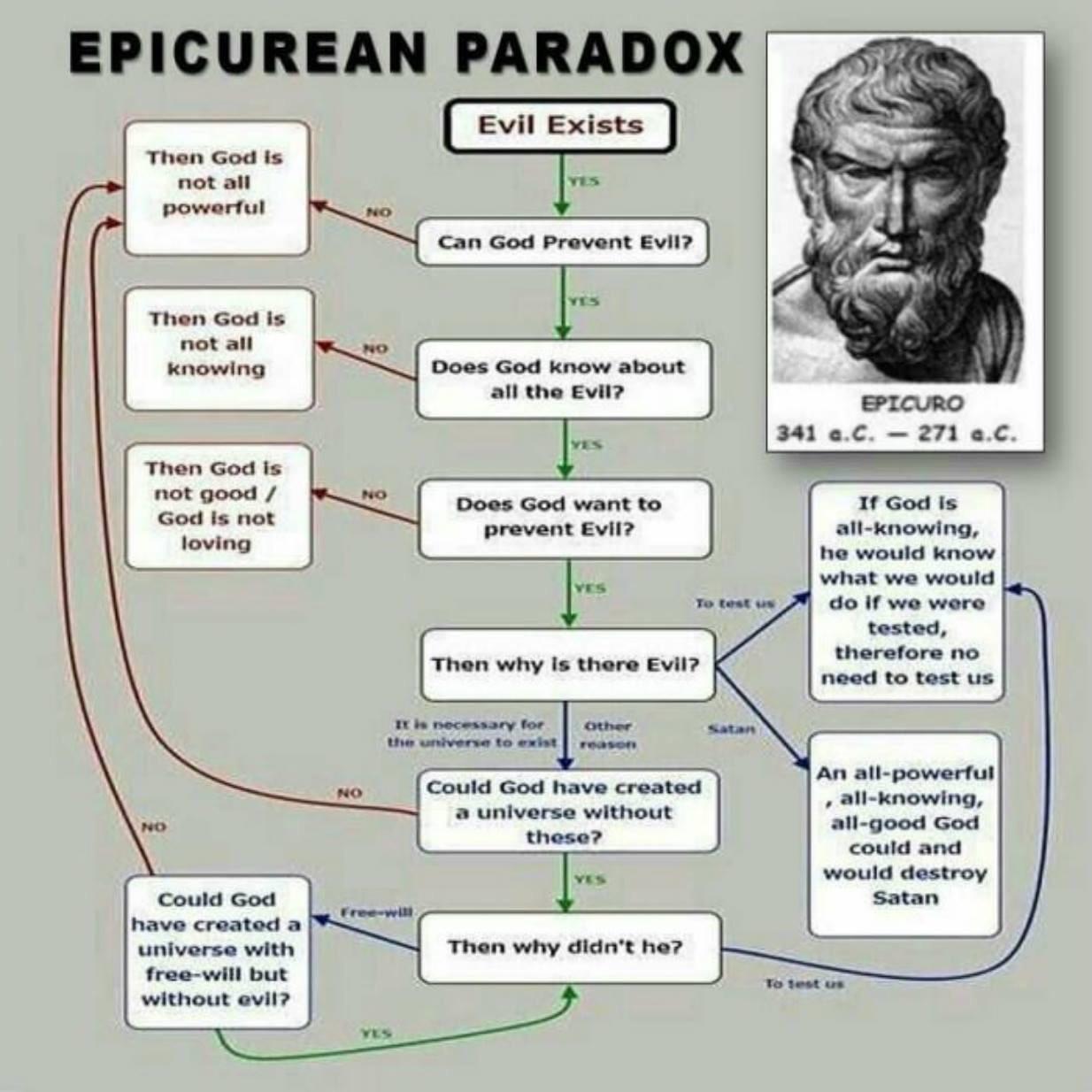This is a pretty broad question, it really depends on what you mean by “believe in religion”:
-
Believe that a particular holy book is literal, historical truth.
-
Believe in the moral teachings of a particular holy book and follow its practices.
-
Believe in the existence of a universal higher consciousness (God)
1 is a vocal minority, and the reasons have been sufficiently explained elsewhere in this thread.
2 is much more common, and can derive from a number of reasons. Cultural identity generally determines which holy book (and interpretation thereof) you follow, but the attraction to moral framework is deeper than cultural identity. Having a set of guidelines to inform moral behavior, and a method of alignment and focus (prayer) is very valuable.
3 is a metaphysical consideration, and pops up even in 2024 because consciousness is still a mysterious phenomenon. Every explanation leads to roughly the same conclusion: if consciousness is an emergent property of complex interconnected systems, then it stands to reason that the most complex interconnected system (the universe) is more likely than not to be conscious; if consciousness is some external force that complex systems can “tune into” like a radio, then it stands to reason that “consciousness” permeates the universe; if consciousness is something else which defies scientific description, then it stands to reason that there exists some agency to dictate the rules.
Those are, broadly, the rational explanations of consciousness of which I’m aware, and they all imply a universal consciousness of one variety or another. If you can think of another I’d love to consider it.
If you meant something else by “believe in religion”, let me know.
Another big reason is reason number 4
- Gives a sense of community and cultural connection that other things don’t quite provide.
I’ve met a not so inconsequential amount of people in my life that when pressed admitted, they don’t believe in god, don’t believe in the moral teachings, but attend a place of worship because they think there is no replacement for the interwoven community and cultural connection their place of worship provides. Many people simply like the community connection of their root culture. This is especially true in minority groups (black church, synagogue).
That’s another big reason to practice for sure, but I think it’s a stretch to call that belief.
None of the things by themselves fully justify “belief” in a religion yet many people claim they are without a true belief in the entire system. It’s the problem with such a vague question. By a narrower definition very few people attending a place of worship are true believers. Someone can believe in god, but not really believe in the rules, and still say they are “religious”. Someone can believe in the rules, but not god, and say the same. I think if you are practicing the religion to some extent then you have a right to call yourself religious if that’s how you view yourself regardless of your true beliefs on god, rules, etc. Cultural impact matters more than we give it credit for.
This is me and my family right now. Two days ago we had lunch with our pastor to discuss the design of the church’s nursery and I came out as atheist and my wife came out as Buddhist. The pastor didn’t challenge us on any of that and we ended talking about what drew us to social justice causes. We believe in each other and that is enough.
It’s very rare that you find anyone on Lemmy/Reddit that actually takes more than eight seconds to critically think about the significance of “religion,” and not just immediately monkey brain into “religion is for idiots.” Alas, I hoped that this particular group think would’ve stayed behind.
A belief is not a religion, and a religion is not a belief. Any one person can be varying degrees of “religious,” and any one person can hold varying levels of belief in a higher power.
I don’t have much else to add because your comment was pretty well thought-out.
This 👉🏼 #3 👆🏼
-
They are taught about it from childhood and many of us don’t questions stuff we’ve learnt in our childhood.
Education fails to instil scientific temper in them
Lack of proper mental health awareness and support.
Education fails to instil scientific temper in them
Islam used to be the forefront of scientific and mathematical discovery. Believing in god have nothing to do with science or math, it’s superstition, something that cannot be proven or unproven, it’s that irrational thought that make us human.
Thank you, I think people often overlook how faith and scientific thought can be complimentary. In any case, for questions of religious/spiritual matters, people are basically just running with a hypothesis that works for them. As long as they’re capable of being self-critical and aren’t pushing their beliefs on people who aren’t interested, then it seems fine to me.
Islam used to be the forefront of scientific and mathematical discovery.
No, Islamic COUNTRIES did. They didn’t achieve excellence in science because Islam benefitted science.
They achieved excellence in science compared to Christian countries in large part because their religious authority figures didn’t stand in the way anywhere near as much. Not because religion helped.
Believing in god have nothing to do with science
Not true. They are polar opposites. That’s why scientists are disproportionately atheist and agnostic: the evidence based mode of thinking employed in science doesn’t mix with the superstitious and unquestioningly convinced thinking of religion without some SERIOUS cognitive dissonance.
it’s that irrational thought that make us human
No. That’s not being human, that’s being brainwashed and/or obedient to authority.
You’re right that it’s irrational and that irrationality is an inherent part of being human, but the SPECIFIC irrationality of religion is learned and enforced, NOT inherent.
No, Islamic COUNTRIES did. They didn’t achieve excellence in science because Islam benefitted science.
No one claiming it is.
They achieved excellence in science compared to Christian countries in large part because their religious authority figures didn’t stand in the way anywhere near as much, not because religion helped.
Not sure how much difference is by changing “Islam” to “Islamic countries”, because the fact still remain that Muslim make scientific discovery and excel in mathematics despite being religious. Again, no one claiming Islam benefitted science.
Not true. They are polar opposites.
You just contradicted your last point. Also science are not religion, how can an apple be polar opposite to orange? One can believe in santa clause and ghost while excel in science. It’s not mutually exclusive.
That’s why scientists are disproportionately atheist and agnostic: the evidence based mode of thinking employed in science doesn’t mix with the superstitious and unquestioningly convinced thinking of religion without some SERIOUS cognitive dissonance.
Science are a broad subject, unless they purposely went and look for god, which they wouldn’t find, there’s like a huge load of subject that doesn’t have anything to do with god. Also your impression of religion is like, wrong lol. There’s more to religion than just praising god.
No. That’s not being human, that’s being brainwashed and/or obedient to authority.
See? Human ARE irrational.
Islam used to be the forefront of scientific and mathematical discovery.
People of all religions have contributed to scientific growth.
The average religious person and the person discovering scientific/mathematical stuff are generally different tho.
Universal basic education has gained focus in many parts of the world, only relatively recently.I think improved scientific temper would obviously clash with many mainstresm religions.
Presence of some supreme creator may not be proven or disproven, but I think the anti-evolution stuff and similar things in most mainstream religions would face more questions when scientific temper improves.
And I’m not saying that non-religious people are safe from similar stuff too. Just that it is easily spread and maintained when you have a community on it.
Presence of some supreme creator may not be proven or disproven, but I think most of the anti-evolution stuff and similar things in most mainstream religions would face more questions when scientific temper improves.
And religions can evolve with this (or die from declining membership), as long as the leaders don’t stick to the “These actually scientifically proven facts are lies sent by the Devil” line.
They are taught about it from childhood
in one single word >> Indoctrinated
OP this is why people believe in religion, and it’s nearly impossible to get them out of it, you can’t reason someone out of something they weren’t reasoned into in the first place
I find this a seemingly straight-forward point I’ve never gotten a religious person to acknowledge.
99.99999% of people follow the religion they do because their parents did. Not because it’s true. That Christian, that Hindu, that Jew. It’s just because they were told it was true at birth.
If their religion was actually the Truth, why would that be the case…?
I find this a seemingly straight-forward point I’ve never gotten a religious person to acknowledge.
because they don’t see it that way, they have their own understanding of free will, religion sells itself as test ( for the most part ), if you pass the test ( temptation or whatever you wanna call it ) you’re qualified to enter heaven, so in a way even if you’re born christian or a Muslim you still going to get tested, so in their view it doesn’t change anything, but from our perspective, it changes everything because we bet that if their parents didn’t make them that way, they would never go that route on their own…
99.99999% of people follow the religion they do because their parents did. Not because it’s true. That Christian, that Hindu, that Jew. It’s just because they were told it was true at birth.
That’s why we must address the root cause of all this, which is religion, in Islam for example “Prophet” Mohammed piss be upon him, said
“Every child is born in a state of fitrah, then his parents make him into a Jew or a Christian or a Magian.” (Agreed upon)
As you can see, Mohammed doesn’t apply his own observation on his beliefs and because people glorify him, they will never dare to question his reasoning, which is also their own reasoning now…
You can tell a religious person to criticise everything and everyone, and they can, tell them to redirect their critism to their own belief, and suddenly they’ll become intellectually handicapped
My search for truth in my early 30’s led me to study the world’s religions, having grown up secular and feeling like something was missing. But don’t let this anecdote or others like it get in the way of your logic. You’re doing pretty good for a hairless monkey!
Even if they do question, it’s not like they are in a safe environment to do so openly. They have to be prepared to give up community, friends, family, potentially their physical safety, and a worldview that says exactly who to be and how to live to be living a good life. That’s a huge step.
I know for a fact there are religious people going through the motions because the alternative is too frightening, just like people stay in bad marriages.
Right. Throughout human history, if someone was cast out of a community, they didn’t survive. We’ve been trained through evolution to go along with the tribe because it’s unsafe to question anything and get cast out.
Survival of the fittest. Evolution does not value truth or mortality, so for example secret rapists are a highly successful adaptation regardless of the morality of the action. If evolution is a correct model of reality, this pesky religion and moral agency will diminish with time. True progress. Maybe we can start counting the years from the big bang instead of that Jesus event or w/e!
I agree. The support aspect is very strong. Can’t go against it, unless you are lucky and/or skilled. Or very brave.
Research shows that we have the innate (ie. without being externally influenced) belief that there is a higher power. So we are socialized/influenced into NOT believing in God.
Atheism and secularism are big now but this only started to be so in the recent hundred years.
Personally I find my religion logically making sense more than what atheistic ideologies bring forth and their misuse of science illiteracy.
The scripture is preserved and I had the chance to learn the original language which allows to assess it firsthand.
In some religions walking away from the church means being excluded from family, social, and business contacts. So cutting ties with everyone you know basically.
So better start believing in some magic men.
You can just like, say you do. I think a lot of people who check “Christian” in the US have little to no involvement in it beyond saying “thank God” occasionally.
I remember reading a story in my Spanish lit class about a guy who wasn’t attending church, and his mother was freaking out, so the family priest went to talk to him. And the priest was like, “I totally get it. After all the evil I’ve seen I don’t really believe either. But I continue in this because it is my life, and I can provide comfort to people. Consider attending because you love your mother and it will help her.”
It is very difficult to accept mortality if you don’t believe in an afterlife. Religion brings comfort, and comfort improves mental health (at the cost of some delusion).
You have a cult following around celebrities and you are surprised by religion which is older than you?
The difference is we have evidence that celebrities exist
You are dumb so I am going to explain to you so you can understand why this is actually a counterexample that you just gave yourself. Irrationality is what’s the most important problem here. Celebrities can talk about absolute random and insane shit and people will believe them 100% and pretend their words are the words of god. You can prove it’s bullshit 100% and people will still believe it.
I wasn’t even disagreeing with you. But rage on, queen.
We’ve proved the popular religions wrong definitively, but the truth’s turned out to be unbearably horrifying for most people.
I can think of four possible reasons:-
-
It works on my system - We are shaped by our experiences. To someone who had their life turned around by a religious order (or a religious individual), it would make sense to follow their teachings.
-
Opium of the masses - Life is filled with suffering. It is nice to imagine that there is someone looking out for you. An afterlife free of suffering is even better.
-
Just following orders - If you want to do something, but don’t think your community will support you, it is easier if you say ‘god told me to do it’. It might also make it easier to justify the action to yourself.
-
Church of England - You don’t care much either way, but it’s too much of a hassle to leave. Plus meeting your friends and neighbours every week is fun.
-
Been religious since I was born, still makes sense to me.
I thought the edgy athiests stayed on reddit, sad to know y’all are here too.
It isn’t really about edginess. People tend to continue believing in whatever religious preference (or none) they have unless something convinces them otherwise in whatever direction.
To an atheist’s point of view, it legitimately doesn’t make sense why someone would be religious when what they see is nonsense. It is a genuine confusion and not necessarily meant to be rude.
This isn’t just an atheist thing that happens, religious people can often not understand why someone would ever choose anything other than their religion. It doesn’t make sense to them either.
Sure, but most answers here boil down to “they’re not as smart as le enlightened atheist”
There is a common circle jerk for sure. Humans gonna human, it happens everywhere. However the question was honest if a bit rude sounding.
The question is completely okay, that’s why I answered it. The second part is only about other comments.
Then study theology and prove them wrong.
No, thank you. Not here to prove anything to anyone.
Don’t let the atheists win.
I suppose it’s better than following a standard of evidence that enables homophobes/transphobes, and opens the door to preachers feeding their politics to you.
For me its a combination of learning it since childhood and experiencing minor things that i can’t explain differently.
For example once i had a thought in my mind that i should go home that evening when i see the clouds. Later at the bbq i remembered that and looked into the sky and saw some clouds in the distance and just knew that these were the clouds. But it didn’t looked like it should rain, and the weather forecast was also clear. So i stayed. Later when i went to the train, a huge number of people from a heavy metal concert that just finished came, and enough people wanted to take the last train that day that some didn’t make it inside. If i had gone home when i saw the clouds, i wouldn’t have been in that overcrowded train.
Also for me my faith looks consistent internally and with other stuff that i see.
You can’t explain a decision having negative consequences without God?
This is one time i know God was involved. Other times things i did had negative consequences just because they were objectively bad decisions from me.
I like how all these answers involving science fail to realize that the scientific method was used exclusively by many scholars and students who had no historical evidence of giving up their religion.
Empirical evidence is as old as humans, and afaik the modern scientific method has been in use since the Islamic golden age if not older.
The key here is that many of these people did not consider religion an empirical issue but a philosophical and ethical one. Particularly with the monotheistic religions, this would make sense because you can easily argue that it would be impractical to test for the existence of God.
I think a better question would be why do people believe in their respective religion if it contains a glaring contradiction(s).
When you’re brainwashed from birth, it’s difficult to recognize you’ve been brainwashed.
Our tendency to perceive agency in ambiguous situations sheds light on the origins of cognitive biases like religion. Our minds, shaped by eons of natural selection, are finely tuned to err on the side of caution. Think of a group of ancient hunters traversing the savanna. A rustle in the tall grass could be merely the wind, or it could be a lurking predator. Those who instinctively assume the worst and flee are more likely to survive than those who dismiss the sound and remain vulnerable.
Over time, this survival advantage has led to the evolution of cognitive models that favor the perception of agency, even when there is none. We are prone to seeing patterns, faces, and intentions in random events because the cost of mistakenly attributing agency is far less than the cost of failing to detect a real threat. This explains why we might see a face in the clouds or feel a presence in a dark room. Religion is a direct byproduct of this phenomenon.
Furthermore, it’s important to keep in mind that every contemporary belief system stems from an uninterrupted chain of development, tracing back to the earliest human societies. This implies that every ideology has enjoyed a measure of success, having endured the test of time. This makes it difficult to definitively assert that one set of beliefs is fundamentally “more correct” than another, as truth is often subjective and dependent on context. After all, the effectiveness of a belief system in enabling a culture to thrive and grow is perhaps the most relevant measure of its “truthfulness.”
If somebody grows up in a religious environment, then religion becomes central to their world model. It’s not an isolated concept, it’s an integral part of the tapestry of their mind. Our brains, like all physical systems, operate within the constraints of energy efficiency. Assimilating a new idea requires mental effort, as it necessitates restructuring our existing cognitive framework to accommodate the newcomer. This, in turn, translates to expending energy to rebalance the connections within the neural networks of our brain. If a novel concept clashes significantly with our established beliefs, the energetic cost of integration can be substantial. Radical ideas that demand a significant restructuring of our mental models, such as challenging deeply held religious beliefs or political ideologies, may be discarded, deemed “too expensive” from an energetic standpoint.
This principle helps explain why it’s often so difficult to change the views of others, regardless of the soundness of your argument. The strength of the argument alone may not be enough to overcome the inherent inertia of our entrenched belief systems.
For the same reasons they always have.
The year has little to do with it. The only things we’ve really undeniably progressed in over the past century are scientific knowledge and the level of technology. Existential philosophy hasn’t exactly made breakthroughs recently, to my knowledge.
Each person still needs to find their own answer to the fundamental questions of “why am I here” and “wtf is death and how do I deal with it”.
Our mechanical, scientific understanding of reality provides fairly depressing answers to these questions. Religion? Sunshine and roses.
Also, on a more practical factor: childhood indoctrination and cultural inertia. Most people are raised in religion and they find it “good enough”, so religion continues.
I find it more depressing that there is a God that decides what is good and what isn’t and gives us “free will” just so He can torture us for eternity if we dont do what He wants… kinda fucked up ngl
Fortunately I don’t need any more reasons to live than enjoying my day to day, being with the people I love, doing my little projects etc.
Oh, continuing down that line of thinking leads to far worse then “kinda fucked up.” If the judeo christian deity exists and is accurately described by their books than it is a total monster not worthy of praise or devotion…
What I understand about the judeo christian god is that they are believed to have created everything that has ever been or will ever be. They have total knowledge of everything past present and future, and they “knew me” prior to them creating me, knew what kind of person I would be, and knew without doubt that I wouldn’t believe in or worship them… so they created me with full knowledge that I’ll spend eternity being tortured in hell. What kind of benevolent deity brings a creature into existence just so they can be tortured? If that’s not full blown fucked up, then I don’t know what is.
You’ve basically touched on one of the core logical issues at play in Abrahamic religions (and others). God is omnipotent and omniscient, or people have free will. It can’t be both.
God knowing what you will do does not remove your responsibility of the decision you made.
This isn’t about responsibility, it’s about preventing suffering. If you could prevent a genocidal leader from being born, which you knew would save hundreds of thousands of innocent lives, why wouldn’t you? Because it’s that person’s “responsibility” that all of those innocent people died after all?
So is God powerless to stop people from committing evil?
Here is the answer: https://www.youtube.com/watch?v=8VoX-IkHVTE
That is not an answer, it’s a man avoiding the question entirely.
God existing would absolutely place all responsibility upon God, not on its creation for doing only what it was created and constrained to do by that God. Every “decision” would require that God to allow it, making that God responsible.
Here is a nice visualisation of the logical paradox:

The year has little to do with it
The irony. Why exactly does the entire world accept the current year as being 2024? What are we 2024 years away from?
For the same sort of reasons there are (generally) 12 months in a year and there are 7 days on a calendar, and for the same reason that “John” is a name, and why London is placed where it is, and etc?
Because some dudes decided some stuff, and some other dudes decided some stuff influenced like that, and so on. And some stuff got changed, and some stuff was inconvenient to change or there was no real reason to change it.
The year is ironic in the exact context you quoted I guess. But the days of the week and many months were named for other mythologies.
What I was actually saying is that the same reasons for belief apply whether it’s 2000 BCE or 4000 CE. Humans remain human, and religion fills an inherent need.
There’s other religions than Christianity - large ones - that do not consider the birth of Christ as particularly meaningful. The fact that we’re using it as a point of reference is meaningful - the Christian religion has been very influential - but it is hardly some grand irony you seem to imply.
Since here the answers are split between edgy kids and people repeating a bland, stale narrative about comfort and fear of death, I will try to bring a different perspective.
For context: I grew up in a Catholic country but in a very secular family and in a very secular region. I’ve had an edgy atheist phase that lasted between 8yo and probably around 30yo.
I studied a STEM discipline and have always been surrounded by mostly atheist or agnostic people.
I was afraid of death up until I was 27/28yo, but the cope was gnostic transhumanism, not Abrahamitic religions. At some point I took acid, my gf at the time told me I was going to die, I cried my eyes out for a few minutes and then I was fine and I’m still fine. I had a near-death experience in the hospital that further consolidated the idea that I’m going to die, and it’s chill: if you’re sick, you have a bunch of people looking after you, everybody gives you attention, you spend all your day chilling in bed on drugs. Dream
lifedeath.I was still agnostic at that point. I started approaching spirituality later on, not much because of an emotional need, but because further studies both in STEM disciplines and Philosophy highlighted the limit of reason to explain and understand the world. Reason is a tool among others, with its limits. Limits that can be reasoned about using reason itself. You cannot investigate or explain what lies outside though, let alone change it, something for which you need different tools: faith, spirituality, trust. I got closer to what Erik Davis calls “Cyborg Spiritualism”, but it doesn’t mean much since it’s not an organized movement, but more of a shared intuition and meaning-making process to which, in the last 60 years, more and more people arrived. Especially people dealing with disciplines like system theory, cybernetics, system design, and information theory, but also people disillusioned with the New Age movement or other Western Gnostic practices. Mixed in it there’s plenty of animism.
Atheists believe that all religions are about speaking to God, and hoping for an answer, while many religions are about listening to God because they are already talking to us all the time.














